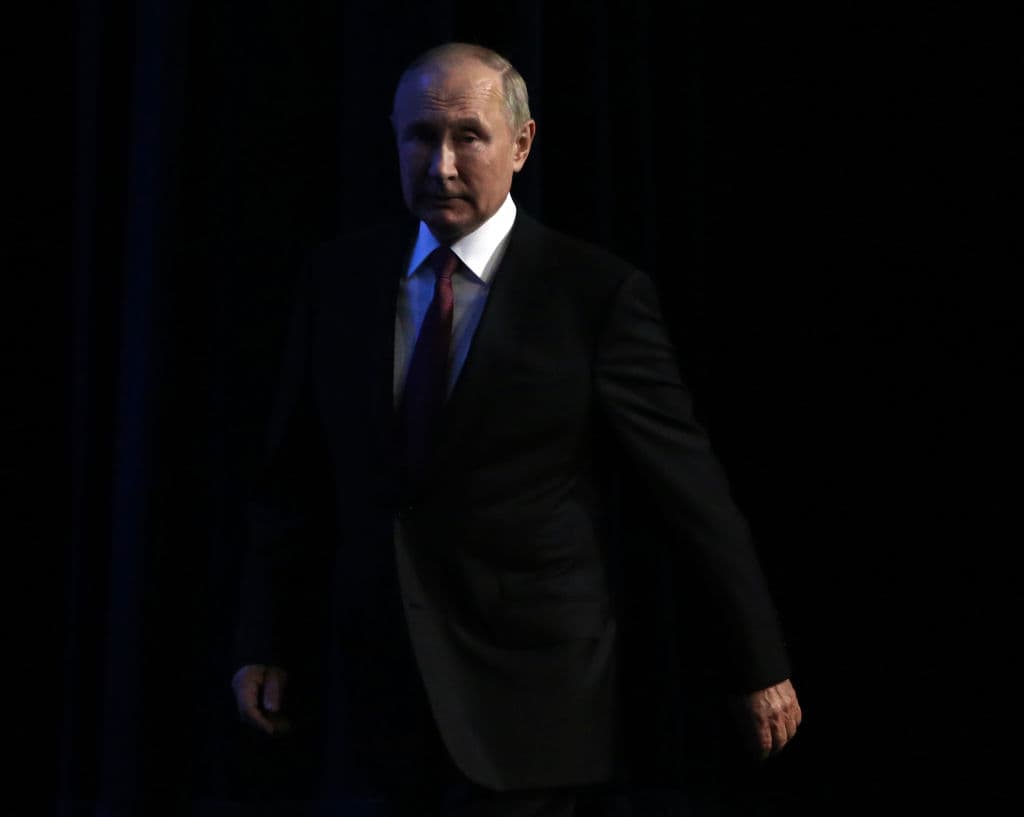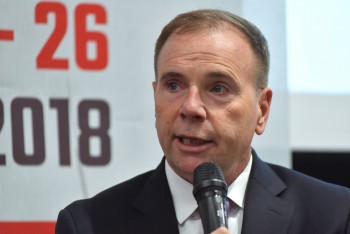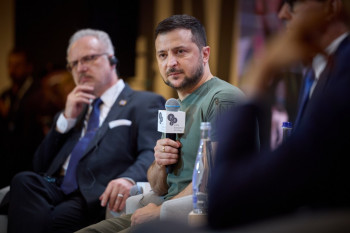Russian hawks criticize regime's war effort as Putin raises stakes

Since launching the full-scale war against Ukraine, hardliners became the backbone of Vladimir Putin's regime.
Russian officials, propagandists, and "military experts" have all been actively promoting Russia's land grab.
Yet, the Kremlin's defeat in Kharkiv Oblast turned Russia's pro-war camp against its leader. Now, it looks like the Russian president is trying to contain the output by promising outright expansion.
On Sept. 21, Putin declared a "partial mobilization" with the aim to draw 300,000 new soldiers for the bleeding Russian army. "Mobilization measures will begin today," Putin said.
In his speech, Putin once again called Kyiv "fascist" and hinted that Moscow would annex Russian-occupied territories of Luhansk, Donetsk, Kherson, and Zaporizhzhia oblasts and would consider Ukrainian liberation of those territories an attack on Russia.
"When its territorial integrity is threatened, Russia will use everything it can, this is not a bluff," Putin said, implying the potential use of nuclear arms.
Russian political analyst Dmitry Oreshkin argued that Putin effectively succumbed to the pressure of the pro-war camp.
"It's not his style," he said, referring to the way the decisions on mobilization and annexation referendums were announced. "I believe he was forced to do this."
The main factor that made Putin announce these radical measures was Ukraine's successful counter-offensive, Oreshkin said. Putin was apparently persuaded by the military and law enforcement elite that Russia lacks the personnel to continue the war, he added.
Critics across the aisle
When the Kremlin launched its all-out war, Russian "liberals" were the only small group expressing dissatisfaction with the invasion and Putin's regime. In September, they received an unexpected ally.
The most outspoken critic of the Kremlin's war strategy in the pro-war camp was Igor Girkin, also known as Strelkov – a Russian warlord who was among the first Kremlin-led mercenaries to take part in Russia's 2014 invasion of Ukraine.
Girkin, charged by the Dutch Public Prosecution Service with shooting down the MH17 passenger plane, killing 298 people onboard, has lambasted the Russian leadership for military blunders and for refusing to carry out mobilization since the beginning of the full-scale invasion.
After Ukrainian troops launched an offensive in Kharkiv Oblast, Girkin called for court-martialing those responsible for the Russian defeat.
"For unclear and unexplainable reasons resembling utter idiotism, they created perfect conditions for the enemy to launch this attack," he said. "If our forces don't launch a counterattack, this will mean that the Russian army has lost the battle for initiative."
While Girkin has long been critical of Putin's policies, other pro-war propagandists and activists have abstained from direct criticism until now. Recently they had a change of heart.
Russian nationalist Yegor Kholmogorov said there were two possible explanations for the Russian defeat in Kharkiv Oblast – treason or the Russian army's weakness, which is the leadership's miscalculation.
Even propagandist Yury Podolyako, known for exaggerating Russian successes, has changed his tune.
"We had reserves, but someone deployed them poorly, which led to the result we have now," he complained. "Many are trying to ignore the problems exposed during the first months of the war...Without solving these problems we shouldn't count on winning the war."
Alexander Sladkov, a propagandist on Russian state television, criticized Defense Minister Sergei Shoigu for being too soft and said he missed Shoigu's predecessor Anatoly Serdyukov.
Chechen strongman Ramzan Kadyrov, one of the most radical proponents of the war since the start, was also dismayed by the Russian defeats.
"Unless changes are made to the 'special military operation' today or tomorrow, I'll have to speak to the country's leadership to explain to them the situation on the ground," he said after the defeats in Kharkiv Oblast.
Pro-war imperialists have also criticized the celebrations of Moscow Day on Sept. 10-11 during Russia's ongoing defeats on the battlefield. The celebrations were attended by Putin and Moscow Mayor Sergei Sobyanin, who jointly opened a Ferris wheel.
After this wave of criticism, several Russian cities canceled their own celebrations.
Mobilization drive
After over a week of criticism from all sides of Russia's political spectrum, Putin's regime decided to bank on their war camp, calling a "partial mobilization."
The majority of the war camp rapidly dropped their criticism after receiving what they have wanted.
Strelkov has called for mobilization since Feb. 24, while Kadyrov urged all Russian governors to carry out mobilization on the regional level instead of waiting for general mobilization nationwide as Ukrainian troops were entering the cities of Balakliia and Izium.
On Sept. 12, Mikhail Sheremet, a member of the State Duma's security committee, called for carrying out general mobilization, saying that Russia could not achieve victory otherwise.
However, the lies of Putin's regime and his close allies are not exempt from criticism.
On Sept. 21, Shoigu said that Russia lost around 6,000 soldiers, while 90% of those injured are cured and are back in the army.
Russian ultranationalist Semen Pegov, the administrator of the WarGonzo Telegram channel with 1 million followers, questioned Shoigu's words.
"We don't know about Shoigu, but we have more (soldiers killed)," wrote Pegov.
In early August, the Pentagon said that Russia had up to 80,000 soldiers killed, wounded, or captured. According to Ukraine's General Staff, Russia has lost over 55,000 troops in Ukraine since Feb. 24.
Oreshkin told the Kyiv Independent that so far, Russian imperialists were reluctant to criticize Putin himself. Still, Shoigu and some "traitors" in the government are coming under fire.
Putin is trying to find scapegoats and blame them for the defeats, Oreshkin said. He also is trying to reverse the momentum.
However, Oreshkin said that the standing of everyone in power, including Putin, is becoming unstable.
"They can't wage war (successfully)," Oreshkin said. "The Russian army is incapable of that… More and more people (are) realizing that the war has been lost," he said.












